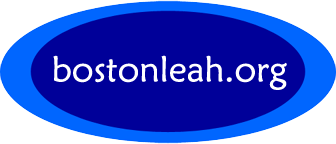



The LEAH Program trains future leaders in adolescent health by providing them with the skills to become effective clinicians, teachers, program leaders, policy makers, administrators, public health advocates, and productive researchers in a variety of health care settings. The LEAH program provides leadership training to physicians, nurses, social workers, psychologists, and dieticians. The program offers intensive interdisciplinary and discipline specific curricula including seminars in adolescent health promotion, research, advocacy, public policy, Life Course framework, prevention, eating disorders, cultural competency, and teaching. Clinical experience is gained in inpatient and outpatient settings including a large hospital-based Adolescent Program, community health centers, and university health service. The program is committed to undertaking research vital to the promotion of adolescent health, and thus involvement in research projects is an important component of training. The length of training and research requirements varies with the discipline and the training needs of the Fellow candidates. Fellows are encouraged to work with public health agencies in designing projects and careers. The program has an outstanding record of training diverse, interdisciplinary Fellows, and the graduates of the Program have become national leaders in adolescent health.
The Program has dedicated faculty internationally known for faculty development, continuing education, scholarship, and technical assistance and collaboration. The Program works with other MCH training programs at Children's Hospital, in New England, and nationally and with Title V state departments of public health, the State Adolescent Health Coordinators, and professional organizations to improve the health of adolescents.
The Division of Adolescent Medicine has a long history of expert clinical care and training at Children's Hospital, dating back to 1951 when Dr. Roswell Gallagher established the first Adolescent Medicine Program in the United States. The goals of the LEAH Program are (1) to provide interdisciplinary training of health care professionals for leadership roles in adolescent health; (2) to work toward improvement of the health status of adolescents through partnerships with other professionals, teams and agencies, addressing the Healthy People 2030 Objectives; and (3) to advance knowledge and scholarship in adolescent health by developing model programs and by disseminating expert clinical knowledge and research. Leadership training produces the next generation of leaders who can influence and train direct service clinicians, become public policy and public health experts, and move the field forward through research, scholarship, and program development.
Youth are America's promise. Investing in youth means valuing their contributions and promoting positive youth development so that each teen can become a healthy, productive, caring, and committed adult. Investing in the health of youth also requires an infrastructure of trained health professionals uniquely qualified and in a position to partner with public health agencies, schools, and community based organizations. The Boston LEAH Program is guided by the MCH goals of eliminating barriers and health disparities, assuring quality care, and improving health infrastructure and systems.
To learn more about the LEAH program at Boston Children's Hospital, click on the links below:




